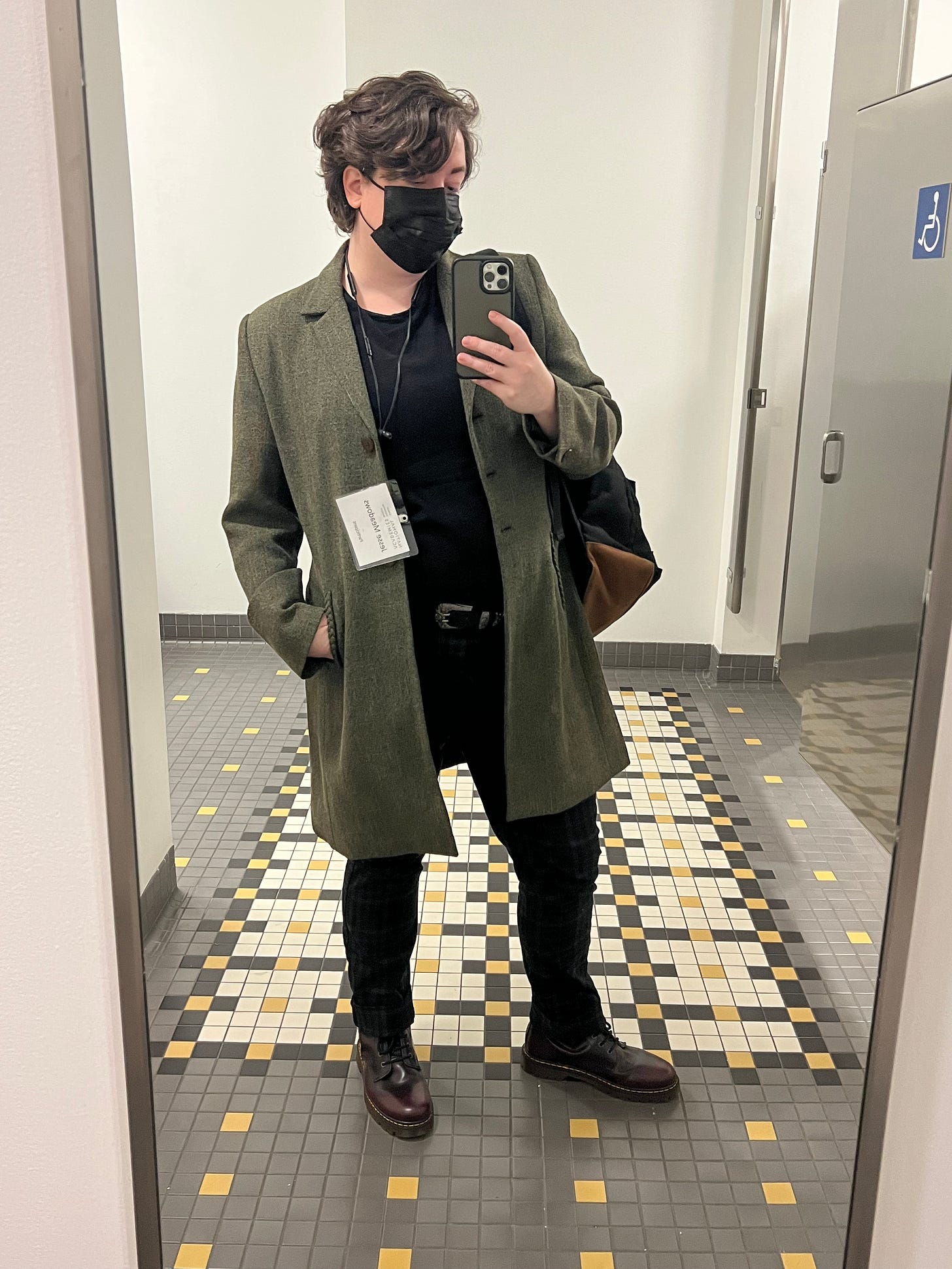Paying Attention at The National ADHD Workshop
it was hard but I did it!! here's some (critical) thoughts. (part 1)
This is a special edition round-up because last week I went to a mini ADHD conference in DC funded by the FDA and a bunch of pharma companies (which I only found out about because I like to dig through government memos that nobody reads).
I will probably split this into a couple parts, because I have a lot of thoughts about this meeting on the many problems caused by institutional dysfunction that, instead, kept harping on the dysfunction inside my brain. I have to admit, it left me feeling like a bit of a public health menace.
I am neither funded by the FDA nor a bunch of pharma companies, but by my generous readers, who made this post possible. You can join them here:
We were told that ADHD causes car crashes, drug addiction, and low earnings, that it’s an economic burden on society costing taxpayers billions of dollars every year (a framing of disability that, historically, has its origin in the eugenics movement). Even more perplexing was the message that all of this could be easily treated if we could just find a way to increase medication adherence, while people across the country have been forced off their meds by the cruelty of the market.
The shortage, along with the fact that there are still no official treatment guidelines for adult ADHD in the US, was a large part of the reason for the two-day meeting of clinicians, regulators, and patients. (I was told that all the slides and recordings of the sessions would be available on the project website in the next couple weeks, if you want to check any of this out for yourself!)
A group called APSARD is currently developing adult ADHD guidelines, and several members were present to speak about their research. ADHD is a “top 3” diagnosis, the experts repeatedly said, meaning it’s one of the most common that clinicians see in their offices, yet several doctors in the room confirmed that they get no training in adult ADHD during residency, and there are no questions about it on licensing exams.
One main point repeatedly stressed was that the vast majority of doctors who treat ADHD in adults — most of whom are nurse practitioners and family physicians — don’t know very much about the medications available, especially the non-stimulants. Making matters into even more of a clusterfuck, insurance companies are hesitant to pay for anything except the short-acting stimulants, which are the very controlled substances a lot of doctors are scared to prescribe, because law enforcement has been cracking down on clinicians.
This creates serious barriers for patients, but harm reduction experts stressed that it’s critical not to perpetuate a just-say-no narrative about drug diversion, which many consider a form of mutual aid.
“If we really are talking about a public health approach we need to ask, why are people using drugs?” addiction and mental health policy scholar Taleed El-Sabawi said.
There were quite a lot of people from the organization ADDA invited to share their lived experiences in the panels, and while I didn’t find myself agreeing with them about disability — a shared lived experience does not necessarily a shared politics make — there was an effort made to include a lot of ADHDers in these conversations. (More on that toward the end!)
I’m going to split this into a few sections, and in the last one, I’ll talk about a couple books I’ve been reading this week that are helping me think about all this:
On Drug Development and Biomarkers
The Problem with “Misuse” and Diversion as Care
Heart Risks and Value Capture



